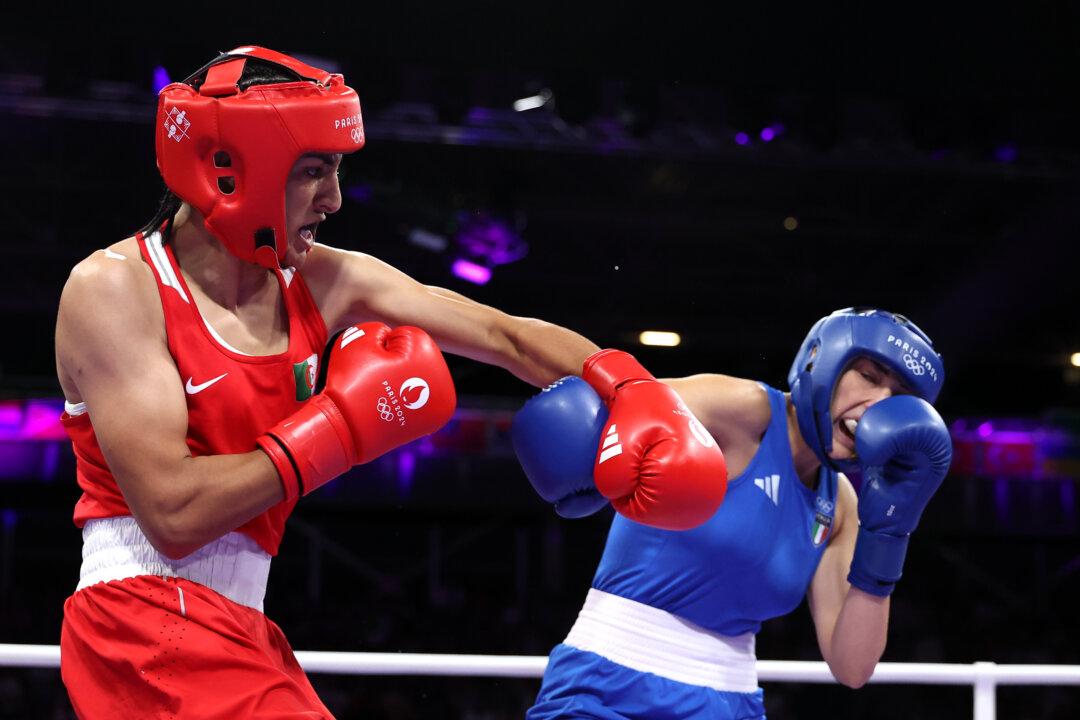Algeria’s Imane Khelif, a boxer who was disqualified from the 2023 Women’s World Boxing Championships for failing to meet unspecified gender eligibility criteria, won a women’s opening Olympics match in Paris on Aug. 1 against Italy’s Angela Carini.
The match between Khelif and Carini lasted a mere 46 seconds, and the two opponents exchanged only a few punches before Carini walked away and abandoned the fight.





